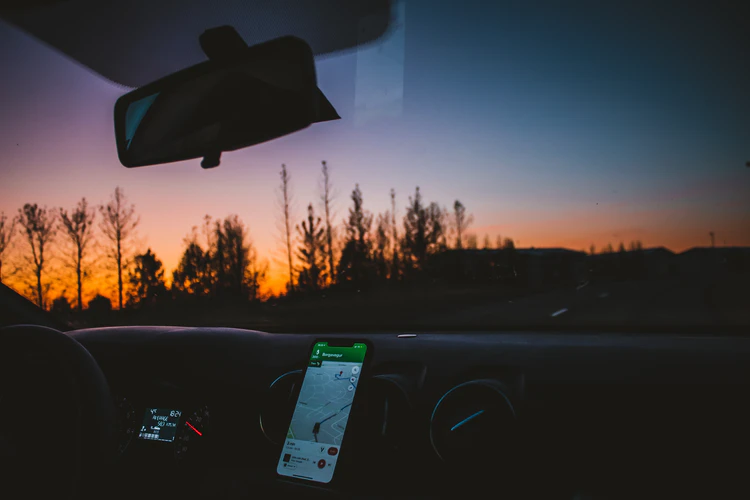
Anxiety is a feeling that can be overwhelming and debilitating. It’s a feeling of worry, nervousness, or unease about what may happen in the future. When driving on the road with anxiety, it’s crucial to find ways to ease your mind and help you drive safely. The following are some tips that will help reduce your anxiety while driving:
1. Listen To Music That You Enjoy During Your Commute
Listening to your favorite music can be a great distraction from anxious thoughts. It can also help you feel more relaxed and calm.
Therefore, when driving to work or doing your usual errands, try to put on your favorite playlist before getting in the car.
Today’s music systems are designed to be used hands-free, which means that you can enjoy your favorite tunes and still stay on the lookout for other drivers.
2. Take Deep Breaths And Focus On The Present Moment
Taking deep breaths is an excellent way to ease your anxiety. The natural act of breathing slows down the heart rate, helps release tension in the muscles, and calms you. Focus on being present at that moment: what are you seeing? What can you hear around you?
Sometimes we may have negative thoughts about our driving experience, like “I’m going too fast” or “I just had an accident last week.” If you refer to a program for anxiety-free driving, you will note that every driver has moments where they feel these things; this is entirely normal! Remembering this one thought will help calm your nerves–and when it feels safe for you to do so, pull over and take some deep breaths before continuing with your trip.
3. Avoid Driving At Night, If Possible
Driving at night can be very difficult. This is because other cars’ headlights can make it seem like you are driving on a slanted road, which could cause your vehicle to slide off the side. Avoid this by only operating at night if necessary and always have someone with you to help keep an eye out for any problems that may arise.
4. Practice Good Posture While Driving – To Stay Relaxed
How you sit while driving can have a significant impact on your back and neck. It is vital to maintain good posture while driving by sitting up straight with shoulders relaxed. You are not putting unnecessary strain on the muscles in those areas of your body, leading to pain, stiffness, or other discomforts.
5. Avoid Driving When You Are Feeling Tired Or Sleepy
Driving while you are feeling exhausted or sleepy can affect your ability to drive safely and increase the risk of a car accident. If you feel tired or weary while driving – stop and take a short nap until you feel rested before continuing your journey.
If you have been driving for an extended period, stop and take a break every two hours to help combat fatigue. Make sure that when you are taking breaks, you also drink plenty of fluids such as water or coffee to avoid dehydration. If you have a driver on board who may assist you with the driving, you may be able to take a more extended break every four hours.
6. Avoid alcohol or drugs when driving because they will impair your judgment and make it more difficult to react quickly if something unexpected happens
Alcohol and drug abuse can be a big problem for many people. Studies have shown that alcohol and drugs can impair one’s judgment, leading to an increased risk of accidents and injury.
Avoiding these substances while driving is necessary because it will help with decision-making if you’re faced with an emergency on the road. Staying sober while driving helps keep you relaxed.
If you are a drug or alcohol abuser, please seek help. It’s better to be safe than sorry.
7. Keep A Full Tank Of Gas
Your car needs some gas to run, and if you’re running on fumes, it’s hard to concentrate.
Give your car the best chance of getting you home safely by keeping a full tank at all times.
Keeping your fuel levels in check will make you feel less anxious about running out of gas on the road and will help keep your mind from wandering. Nothing is scary as running out of fuel in the middle of nowhere, and it’s already dark.
8. Keep A Charged Cell Phone In The Car For Emergencies And Use It As A Gps If Needed
In this modern era, it’s not a surprise that people find themselves in need of their cell phones. It is often used to navigate and call for help if needed, making keeping it charged up at all times necessary.
If you are lost or stranded somewhere without a way out, use your GPS on your cell phone as an emergency measure before anything else. If there’s no signal where you’re at, then make sure to keep either paper maps with you or know what landmarks are around so that when you do have service again, you can tell them how to get back home by following those directions instead of just giving general directions like “go southwest.”
To prevent stressing yourself while driving, make sure your smartphone has enough power to last throughout your journey. If you are driving long distances, make sure to have a car charger
If you’re feeling anxious while driving, it’s essential to take some time and find ways that will help you drive safely. You might want to try listening to music that makes you feel good or taking deep breaths for a few minutes before getting behind the wheel. Other things can also make your commute easier like avoiding night-time driving when possible, practicing good posture in the car by keeping your back straight and shoulders relaxed, not drinking alcohol or using drugs while on the road (which is never safe!), always having a full tank of gas and charged cell phone with emergency numbers saved if needed. We hope these tips were helpful!
































